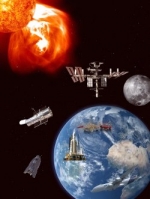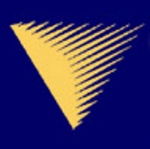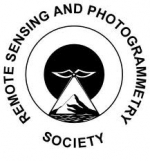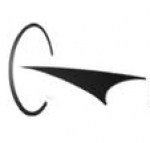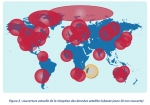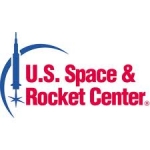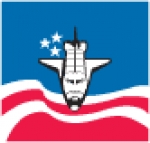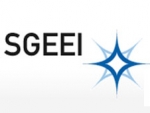Displaying items by tag: education
Alpbach Summer School
THE SUMMER SCHOOL
The Summer School Alpbach enjoys 35 years of tradition in providing in-depth teaching on different topics of space science & technology, featuring lectures and concentrated working sessions on mission studies in self-organised working groups. 60 young highly qualified European science and engineering students converge annually for stimulating 10 days of work in the Austrian Alps. 4 teams compete to design a space mission judged by a jury of experts. Students learn how to approach the design of a satellite mission and explore new and startling ideas supported by experts. The Summer School 2013 will focus on
Space Weather: Science, Missions and Systems
The purpose of the Summer School is to foster the practical application of knowledge derived from lectures, to develop organisational and team-work skills and to encourage creativity. Teams will compete to design the best project, judged by an independent jury. The teams themselves are responsible for the selection of the subject of the project and for the team structure and working methods.
Prospective Summer school students will meet great challenges, such as in real life. These include 20-hour working days (before proposal submittal), sudden immersion into new fields and techniques, as well as the difficulties of forming and working together as a team, with scientists listening to engineers and engineers listening to scientists. However, on day ten, the reward will be a proposal for a unique space mission.
The Summer School Alpbach objectives
- motivating participants to seeing space as an exciting and challenging endeavour
- working in international, multi-disciplinary teams by posing challenging topics for designing space missions
- teach a range of scientific topics relevant to the range of possible science missions to design, and to teach about the different aspects of the complex interplay between scientific objectives and requirements on the one hand, mission- and spacecraft design as well as mission costing on the other hand
- to develop the ability to work in teams for a common end, to prepare presentations and reports under serious time constraints
- to develop a professional network
- to enjoy the “Alpbach experience” that is quite unique
Organised by
FFG, ESA, ISSI, AUSTROSPACE
Virginia Space Grant Consortium (VSGC)
The Virginia Space Grant Consortium (VSGC) is a coalition of five Virginia colleges and universities, NASA, state educational agencies, Virginia's Center for Innovative Technology, and other institutions representing diverse aerospace education and research.
The VSGC acts as an umbrella organization, coordinating and developing aerospace-related and high technology educational and research efforts throughout the Commonwealth and connecting Virginia's effort to a national community of shared aerospace interests.
It is part of the American National Space Grant Colleges.
Remote Sensing and Photogrammetry Society (RSPSoc)
The Remote Sensing and Photogrammetry Society (RSPSoc) is a UK's Society for remote sensing and photogrammetry and their application to education, science, research, industry, commerce and the public service.
As a charity, its remit is to inform and educate its members and the public. It supports networking between the university, business and government sectors. Being an international society, RSPSoc is also active in Europe and on the world stage.
Dark Cosmology Centre
The Dark Cosmology Centre is a research centre focusing on dark matter and dark energy. It was established by the Danish National Research Foundation (DNRF) in September 2005, as part of the Niels Bohr Institute, University of Copenhagen. It is mainly funded by the DNRF for a duration of ten years (2005-2015).
Aims
The centre objective is to gain astrophysical insight into the nature of the mysterious dark energy and dark matter. The nature of dark matter and energy is yet unkown. The existence of dark matter is inferred through its gravitational effects on ordinary, visible matter. The existence of dark energy is inferred from its effect on the expansion of the Universe.
Team
Currently (Nov. 2012) the centre consists of 40 research staff, a centre coordinator, two secretaries, an IT manager and assistant, 12 PhD students, and 9 MSc students (list here). The team members bring in key expertises and interact closely on a daily basis. In addition, DARK receives around 100 visits per year from international collaborators.
Activities
The centre focuses on research, but other activities are also important: research training, teaching, and conveying the results and methods of studying the dark Universe to the public. Increasing the number of women in science, and in particular astronomy, is also among the long-term goals of the Centre.
GENSO
The main goal of GENSO is to realise a worldwide network of radio amateur and university ground stations to support the operations of university satellites.
In order to achieve this goal, GENSO has been designed as a distributed system connected via the internet. The software applications that facilitate the data sharing have been developed in Java by an international team of students. Mission controllers of university satellites can normally gather around 20 minutes of data per day with their own university ground station. GENSO will give them free access to potentially hundreds of stations around the globe via the internet and increase their data return to many hours per day. It will also allow them to command their spacecraft from the other side of the world.
GENSO offers the capability to plan and schedule utilisation of ground station resources, predict the trajectories of spacecraft over the ground station and automate tracking and hardware control during a pass. The downlinked mission data is provided to the mission controllers within a few minutes of the end of the pass. A real-time communications link for transmission of telecommands and reception of telemetry is also possible.
GENSO is a project of the European Space Agency (ESA) and is coordinated by ESA's Education Office. The University of Vigo in Spain hosts the European Operations Node and coordinates access to the GENSO network. The software development was carried out by a distributed set of students and radio amateur teams worldwide. From 2007-2010, over 100 students from universities in Europe, Japan and the USA contributed to GENSO.
GENSO means "Global Educational Network for Satellite Operations".
U.S. Space & Rocket Center
The U.S. Space & Rocket Center is offering a comprehensive U.S. manned space flight hardware museum and space education facilities.
Its facilities include Spacedome Theater, Rocket Park, Space Camp and an Education Training Center which houses NASA's Educator Resource Center.
Space Investment Company LLC
Space Investment Company is a provider of inspiring and entertaining educational experiences in space science and aviation in the Middle East, North Africa and the Indian Sub-Continent.
The company's obejective is to bring the U.S. space technology to the Asian and African continents through SpaceWorld villages in the Arabian Gulf, India and North Africa. It acquired the Space Camp and Aviation technology licenses from the U.S. Space & Rocket Center with a mission: To use U.S. Space & Aviation Technology to stimulate regional interest in the study of aerospace sciences. The company aims to see thousands of Space and Aviation Scientists in non-US regions, scientists who are as competent as those preceding them in America. It propose the following activities:
- Exploration of the dynamics of space and aviation;
- Simulation of the challenges astronauts and pilots encounter during missions;
- Discovery of one's self and the universe in order to reach new heights.
Locations: India, Egypt, United Arab Emirates
Space
SPACE is an Indian company churning out innovative and exciting hands-on astronomy education and astro-tourism services.
The company offers a set of products ranging from recreational science solutions, skill development workshops, stress management, educative & entertaining activities that can be customized as per clients.
Space Grant Education and Enterprise Institute
The Space Grant Education and Enterprise Institute is a non-profit organisation which aims to enable students of all ethnic and financial backgrounds to attain high skill technical and professional careers through education and exciting programs.
Mars Institute
The Mars Institute is a non-profit research organization whose mission is to further the scientific study, exploration and public understanding of Mars. It is an international non-governmental organization.
It is conducting high-quality, peer-reviewed research, and educating the public on the progress toward and benefits of Mars exploration.
It was incorporated as a non-profit corporation in both California, USA, and Canada in 2002.

